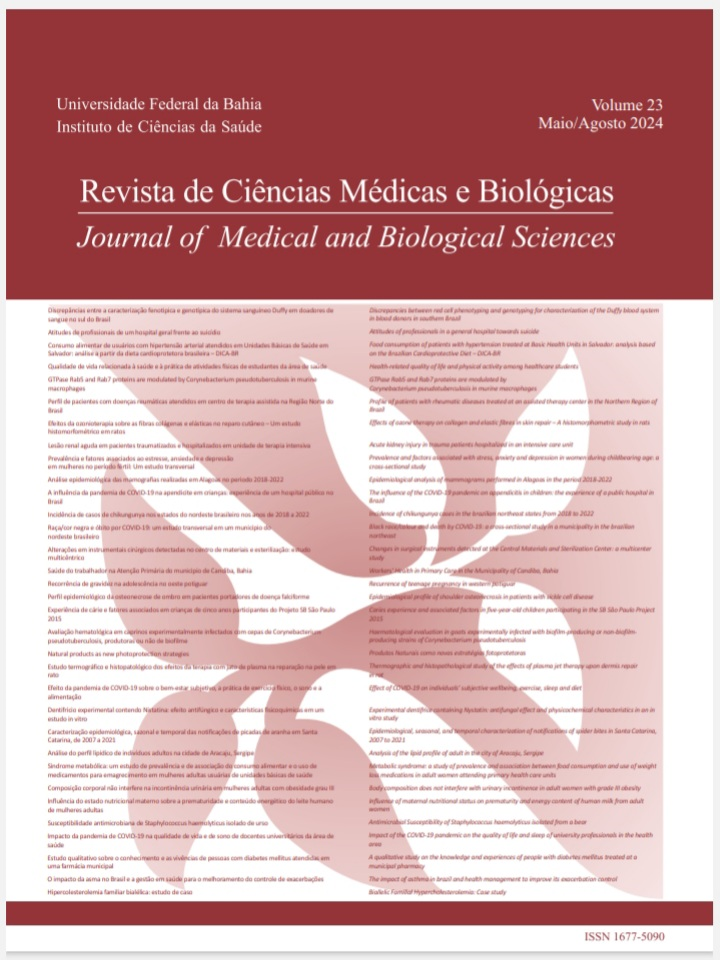METABOLIC SYNDROME: A STUDY OF PREVALENCE AND ASSOCIATION WITH FOOD CONSUMPTION AND USE OF MEDICINES FOR WEIGHT LOSS IN ADULT WOMEN USERS OF BASIC HEALTH UNITS
DOI:
https://doi.org/10.9771/cmbio.v23i2.57112Keywords:
Metabolic syndrome, Abdominal Obesity, Food Consumption, Weight loss, WomenAbstract
Introduction: Central obesity, when associated with systemic arterial hypertension, hyperglycemia and/or dyslipidemia, forms a complex of metabolic disorders, characterizing Metabolic Syndrome (MS). To try to reverse this situation, many individuals use medications and herbal medicines to lose weight, whether or not they use them inappropriately. Thus, the study aimed to evaluate the prevalence and association between MS, food consumption and use of weight loss drugs by adult women using Basic Health Units in São João Del-Rei, Minas Gerais. Methodology: This is a study with a quantitative approach and cross-sectional design, in which women aged between 18 and 65 participated. Data were collected regarding age, weight, height, waist circumference and presence of chronic non-transmissible diseases, use of medications and herbal medicines for weight loss and food consumption profile. Results: The prevalence of Metabolic Syndrome was 15.6% and, when identifying the factors associated with the presence of MS, a relationship was observed with age, weight, BMI (Body Mass Index) (especially for grade II obesity) and waist circumference. The use, in total, of 15 types of medicines and 32 herbal medicines was reported, most of them without a medical prescription, which for the most part did not cause adverse reactions. It was also found that the consumption of simple carbohydrates, mainly daily and monthly, and sweeteners (every day) was lower among those with MS. Conclusion: Primary Care in the Unified Health System (SUS) faces major challenges given the country's current panorama, becoming an important issue to be discussed.
Downloads
Downloads
Published
How to Cite
Issue
Section
License
Copyright (c) 2024 Journal of Medical and Biological Sciences

This work is licensed under a Creative Commons Attribution 4.0 International License.
The Journal of Medical and Biological Sciences reserves all copyrights of published works, including translations, allowing, however, their subsequent reproduction as transcription, with proper citation of source, through the Creative Commons license. The periodical has free and free access.


